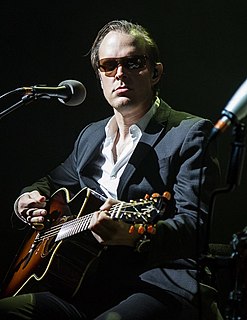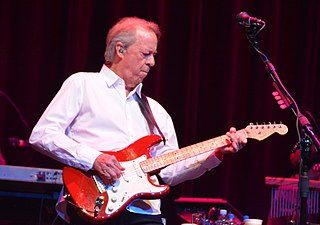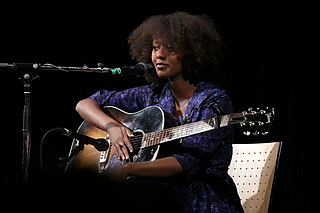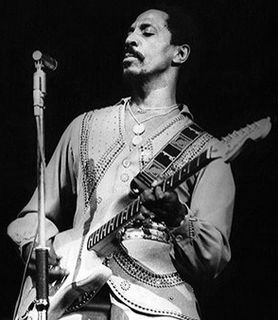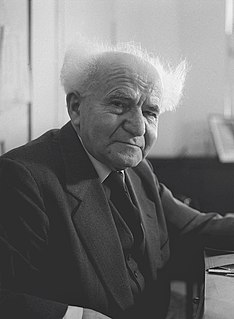A Quote by Joe Bonamassa
That's the thing about the blues: It's one thing to hit a note on a guitar. To make it matter is something else altogether.
Related Quotes
There's a lot of women in blues music, lots of strong women and that sort of stuff. It's not the first thing that comes to mind when you think about blues. There were a lot of powerful blues guitar players in the olden times that were women. It's just that when you think about blues, you have this one image in your mind.
I like all the kinds of music I've been into. I'm certainly not a purist in that I will only play country licks in a country song or blues licks in blues stuff. The thing I would like to be able to do is to make the music sound right no matter what it is. If somebody else wants to have a label for it, then that's their business.
Whereas if you were writing an op-ed piece or an essay, somebody would be asking, "What's your point?" With poetry you can stay in a moment for as long as you want. Poetry is about metaphor, about a thing standing in for something else. It's the thing that opens out to something else. What that something else is changes for readers. So what's on the page - it falls away.
Let me first tell you one thing: It doesn't matter what the world says about Israel; it doesn't matter what they say about us anywhere else. The only thing that matters is that we can exist here on the land of our forefathers. And unless we show the Arabs that there is a high price to pay for murdering Jews, we won't survive.
No matter how many people try, no matter how many fancy songwriters in Los Angeles try to break it down to a formula... to an extent, there isn't a science to writing great songs, I suppose. For me, it's always about melody - it doesn't matter what genre of music you're writing, if there's a strong melodic thing somewhere, whether that's in a vocal or in a guitar part or a sample. Something that sticks in your brain, that seems to be something that works.
